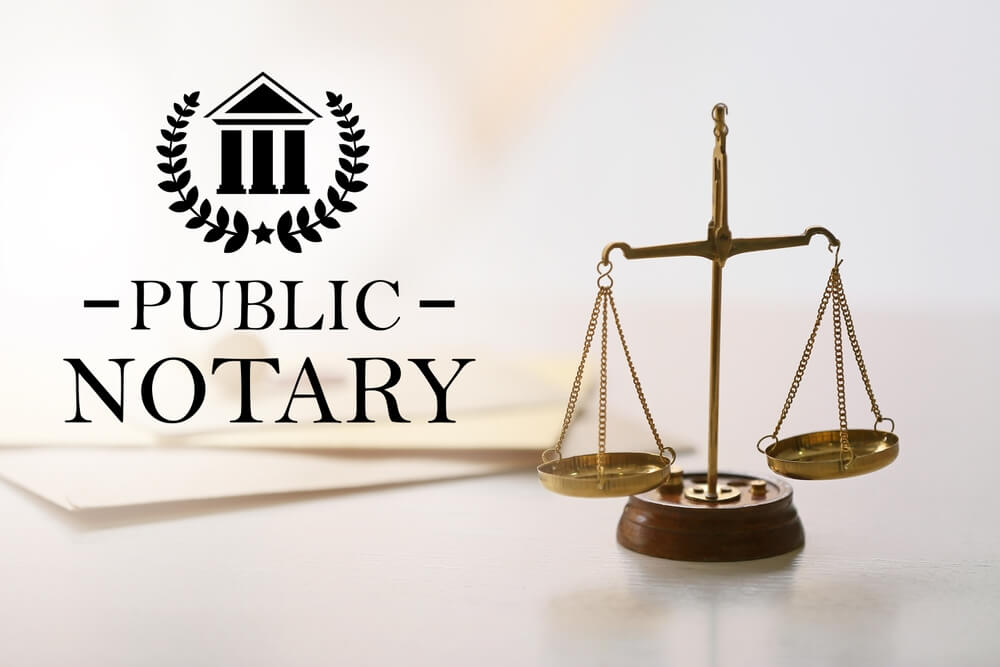Licensed Notary Services: Guaranteeing Legal Credibility and Protection
Demystifying Notarial Job: Simplifying the Duty and Value of Notaries
In the intricate internet of lawful documentation and verification, notaries stand as pillars of assurance and authenticity. Their role, usually shrouded in enigma for many, carries substantial weight in ensuring the validity and honesty of important documents. As guardians of legitimacy and truth, notaries play a pivotal component in our society, yet their work is not always totally comprehended. By unraveling the complexities dropping and surrounding notarial practices light on the value of their acts, a clearer understanding emerges of the important duty notaries play in promoting the material of legal and lawful contracts.
The Background of Notarial Job
How did notarial work advance in time to come to be an important part of lawful and company transactions? The history of notarial job dates back to old human beings, where scribes played an important role in videotaping essential info and authenticating records. As cultures proceeded, the requirement for a much more formalized system to make certain the legitimacy of contracts occurred. This brought about the development of notaries, people appointed by the state to work as neutral witnesses in legal matters.
Throughout the Middle Ages, notaries acquired prominence in Europe, with their functions increasing to include composing legal papers, licensing trademarks, and preserving records. The increase of international trade additionally emphasized the value of notarial work in verifying agreements and arrangements throughout boundaries.
In the modern-day age, notaries remain to play a vital duty in legal and company purchases by validating identities, confirming the credibility of documents, and preventing fraud. Their role in licensing the legitimacy of arrangements includes a layer of safety and count on to the ever-evolving landscape of business and regulation.

Tasks and Responsibilities of Notaries
Notaries play an important role in verifying the credibility of records and the identity of signatures. One of their primary responsibilities is to witness the finalizing of crucial files, such as wills, deeds, and contracts, to make certain that all celebrations are getting in into contracts knowingly and willingly.
Additionally, notaries are charged with providing affirmations and vows, which are vital in legal proceedings and the execution of testimonies. They license duplicates of original records, giving assurance to organizations that the copies hold true replicas of the originals. Notaries have to maintain precise records of all transactions they look after to make sure transparency and responsibility. Generally, the tasks and responsibilities of notaries are crucial in securing the stability and validity of numerous records and purchases.
Notarial Certificates and Signatures
Exhibiting precise interest to detail, notarial certifications and signatures work as crucial parts in verifying the credibility of legal files. Notarial certifications generally include crucial info such as the date of registration, the names of the signatories, a description of the paper, and the notary's main seal. These certifications give a clear document of the notarial act, making certain that the document can be quickly determined and traced back to the notary who looked after the process.
Trademarks play an essential role in notarial work, as they indicate the arrangement and consent of the celebrations involved. Notaries very carefully witness the signing of files to validate the identity of the notaries and validate that they are signing of their own cost-free will. By attaching their main seal and trademark to the record, notaries accredit that the essential procedures have actually been adhered to and that the paper is valid and enforceable.
Basically, notarial certificates and trademarks are the characteristic of Related Site credibility in legal transactions, supplying guarantee to all celebrations involved that the documents are reputable and binding.
Importance of Notarial Acts

Registration Refine Explained
The notarization procedure typically begins with the individual offering the record to a notary public. When the identification is confirmed, the notary ensures that the individual signing the paper does so voluntarily and without any kind of threat.

Verdict

Notarial certificates generally consist of critical information such as the date of notarization, the names of the signatures, a summary of the document, and the notary's main seal. These certificates offer a clear document of the notarial act, making certain that the file can be conveniently identified and traced back to the notary that supervised the procedure.
By fastening their main seal and trademark to the record, notaries certify that the essential treatments have actually been adhered to and that the document is legitimate and enforceable.
By verifying the identity of the signatories, confirming their desire to enter into the agreement, and accrediting the day and place of the signing, notaries play a critical role in maintaining the validity of legal files.After the document is signed, the notary will attach their official seal or Look At This stamp onto the document.